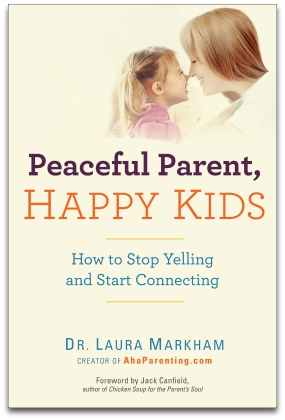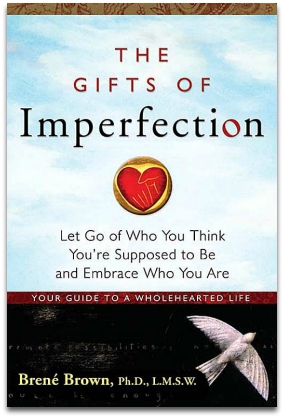 Can you think of the most negative person that you know?
Can you think of the most negative person that you know?
Most likely you can, and the emotions that you’ll experience as you think of them are not pretty.
The relationships that we have with negative people are often complicated and tense. The closer they are in our lives the more difficult our lives become as our desire to be free from negativity becomes entangled with our desire to be close to the one’s that we love.
In my case, the most negative person in my life was my mom.
I still remember the day like it was yesterday. I was 17 years old, excitedly hitting the load and reload button on my laptop. I was too impatient to wait until morning, and so I stayed up late in anticipation for my final grades of my final semester of high school.
Eventually, my grades loaded, and I excitedly read over the marks in each of my classes. Almost all my marks were A’s, except for Chemistry, which was a C+. Knowing that this grade didn’t affect my college application eased my feelings towards these particular results, and so I eagerly ran to tell my mom the good news.
I showed her my marks, letting her know how happy I was to receive mostly A’s for all of my hard work and effort. She sat, silent, barely nodding at me as she read her book. “Mom, Mom, I got all A’s. Well, except for one C+, but that doesn’t count,” I explained hurriedly.
Immediately my mom’s head shot up from her book. “You got a C+? Well, that isn’t very good,” were her first words of our conversation.
And just like that…
All my pride and excitement were instantly deflated. I had failed to make my mother proud, once again. Her simple comment uttered without a second thought created a thick veil of shame around me, one I had been familiar with my entire childhood.
If you are on this site, it’s probably because you want to embrace positivity for yourself and for your family. But, if you’ve experienced negativity in your past, no matter how big or small, you will need to make peace with it before you can move forward on your journey of positive parenting.
It is possible to find healing from the many wounds experienced by adult children who have complicated relationships with their parents.
One of the many benefits of journeying through the pain of your past is that you can finally take control of your future. You can become a parent that effectively disciplines, uses your words in a powerfully positive way for your children, while teaching your children about the importance of building character in their lives.
But how?
 Dr. Laura Markham, the author of Peaceful Parent, Happy Kids
Dr. Laura Markham, the author of Peaceful Parent, Happy Kids, a book that has helped me immensely in my own healing process says:
Positive parenting – sometimes called positive discipline, gentle guidance or loving guidance – is simply guidance that keeps our child on the right path, offered in a positive way that resists any temptation to be punitive. Studies show that’s what helps kids learn consideration and responsibility and makes for happier kids and parents.
Positive parenting teaches our children through respect and compassion that they are valued, regardless of their actions. Positive parenting does not shame, blame, punish, or criticize. Positive parenting does not expect of us perfection, but rather a teachable spirit, for both parent and child. Positive discipline guides children towards the right behavior, not through punishment, but by taking the disobedient behavior as a teachable moment.
If you’re like me, you might be reading this with stars in your eyes.
Positive parenting deserves a place amongst furry pink rabbits and sparkly unicorns.
This can’t be real life, can it?
If all you know of parenting is criticism, shame and fear, then moving past those experiences into positive parenting can feel impossible.
I’ve had those thoughts too. I’d once heard:
A mind, once stretched by a new idea, never regains its original dimensions.
– Oliver Holmes
That has definitely been true in my case. Ever since I found out about positive parenting, I just can’t leave the idea behind. I just can’t go back to parenting in the same critical, punitive way that I was raised.
It can seem quite challenging to make peace with your past and move on to being a positive parent. But it can be done.
Here are 7 steps that helped me in this journey –
#1 Acknowledge your negative upbringing, and choose healing over bitterness
 Some people can heal themselves through intentional awareness, mindfulness and surrounding themselves with positive support. Others may require professional counseling to heal past wounds. Either way, it is fine. Be brave and take the step. You need to do what is required to start healing.
Some people can heal themselves through intentional awareness, mindfulness and surrounding themselves with positive support. Others may require professional counseling to heal past wounds. Either way, it is fine. Be brave and take the step. You need to do what is required to start healing.
I recently experienced a beautiful moment with my daughter that would have never been possible without the healing therapy I’ve received. After a disobedient episode with my young preschooler, I chose to take her aside to a quiet place and we sat together and talked. I spoke with her plainly and gently by posing the problem and asking her a question, “Sera was talking in a disrespectful tone to Mommy, what should she be doing instead?” She eagerly solved the problem by answering, “Sera should apologize and talk kindly to mommy instead.”
This was a moment of recognition that my life has truly taken a different course than it was headed down a few years ago. Without the tools needed to appropriately process my emotions and solve problems, I would not be able to teach my children through positive discipline and redirecting them towards the right actions.
#2 Study the positive impact of positive parenting
There is nothing more powerful than having science to back your personal decisions. Commit to doing some research on positive parenting. This can only lead to more zeal and excitement for transforming your life and healing from your past.
Dr. Barbara Fredrickson researches the effects of positive thinking and behavior on your brain. Through her research she has found that positive thinking is beneficial in building your skills for the future. As a child of negative parents, we need to re-build our skills in life. Using positive thinking is a great way to re-build our own skills and the way we interact with the world.
Your experience with researching and understanding positive thinking will also benefit your parenting and understanding of why we do what we do as parents. Did you know that negative emotions, such as fear, anger, and stress, literally inhibit your brain from seeing other, more helpful opportunities to deal with your emotions?
Now imagine your angry three-year-old, screaming on the floor in an uncontrollable tantrum. Knowing what you now know, their brain is literally inhibited from doing much else than scream in anger, gives you some incredible insight. By preparing yourself for emotional outbursts, you can now help guide your child through their complicated emotions without dismissing them.
#3 Connect with positive parenting networks
 There are many online communities that will support us in the positive parenting journey – for instance A Fine Parent, AhaParenting, Positive-Parents.org, Positive Parenting Connection, etc. If positive thinking shapes our brains, skills in life, and behavior, then it’s only common sense that surrounding oneself with positive people is also good for us.
There are many online communities that will support us in the positive parenting journey – for instance A Fine Parent, AhaParenting, Positive-Parents.org, Positive Parenting Connection, etc. If positive thinking shapes our brains, skills in life, and behavior, then it’s only common sense that surrounding oneself with positive people is also good for us.
Seek out the same in real life as well. Being surrounded by positive parents will encourage us to adapt and adopt some of their parenting techniques as well. Most of us can think of the parent who is trying their best, seeking to engage their children through gently guiding them into teachable moments and helping them to navigate the world on their own. These are the parents we need to befriend, plan play dates with, and share our experiences with.
Adult children raised in negative environments need exposure to healthy families. Not perfect ones, because that doesn’t exist, but families that you can learn from. I have even learned tons from realistic TV show families too, my favorite being Eric and Tami Taylor’s family in Friday Night Lights.
#4 Set boundaries with negative people
It is not possible or even healthy to have a positive bubble where zero interaction with negative people takes place.
One of the things we need to be teaching our children is appropriate boundaries and how to interact with not-so encouraging people.
Since healthy boundaries are often not taught in a complicated home it is important to do some reading on what exactly boundaries are, and how to put them in place.
Teaching my children healthy boundaries is very important to me, and I know that I need to start now, even before they can really understand or even say the word, “boundary”. For us it’s as simple as asking my daughter for permission before tickling her, and even stopping to ask if she wants me to continue. Even if I know she is delighted to be tickled, I know that she needs to understand that she has the power and right to say “no” at any time.
#5 Dismantle the shame narrative
The problem with being raised in a negative home is that the effects of shame and blame carry into adulthood. It leaves us feeling “bad” when we do things wrong, causing negative thoughts to easily grip our minds and rattle us.
Robin Grille and Beth MacGregor paraphrase psychiatrist Peter Loader’s insightful comments about the damaging effects of shame when they say, “people cover up or compensate for deep feelings of shame with attitudes of contempt, superiority, domineering or bullying, self-deprecation, or obsessive perfectionism.”
You will never be able to adopt positivity as a lifestyle, and positive parenting into your home if you continue to carry the weight of shame. This dirty five-letter-word has lasting repercussions on your life. How can we teach our children empathy, forgiveness, kindness and compassion if we don’t even have these feelings about ourselves?
 An excellent book that I always recommend is Brene Brown’s The Gifts of Imperfection: Let Go of Who You Think You’re Supposed to Be and Embrace Who You Are
An excellent book that I always recommend is Brene Brown’s The Gifts of Imperfection: Let Go of Who You Think You’re Supposed to Be and Embrace Who You Are. If you struggle with shame then the title alone will speak to you, so go read it (no matter how busy you are – it will be more than worth it, I promise you!)
#6 Use your story for positive change
Being a voice for positive parenting and helping others to see the damaging effect of shaming and blaming can mean a life-long impact for others.
Perhaps having your parent watch you parent differently can soften their heart too. I have seen some changes in my own mother-daughter relationship, as I mature and shift from feelings of shame and guilt and take power over my emotions.
Being a positive thinker can encourage negative people to also change and embrace this way of life. At the very least, from afar, they will see the impact and change positivity has had on you, and on your children.
Most importantly though, is the lasting legacy that your shift in mindset will have on yourself and your family. Parents who have been bruised in their childhood can cultivate greater empathy for their own children. Often, we can remember what it was like to be a child, navigating complex emotions and situations.
A very practical tip from an excellent piece on shaming says, “Shaming can be avoided if, instead of just chastising or stopping the child, we also provide a safer, alternative activity.” It could be as simple as intentionally making the switch to “Put your shoes away on the shoe shelf” instead of thoughtlessly blurting out “You left your shoes in the hallway, again!”
#7 Make time for yourself
 I believe that a big reason I was raised in a negative home was that my mother was a single mother, with no support, and little guidance or understanding about her parenting style. This has helped me to forgive her, but also helped me to take practical steps to prevent myself from becoming burned out, angry, and negative.
I believe that a big reason I was raised in a negative home was that my mother was a single mother, with no support, and little guidance or understanding about her parenting style. This has helped me to forgive her, but also helped me to take practical steps to prevent myself from becoming burned out, angry, and negative.
Getting away for a little while, whether it be for a date night with your spouse, a girls’ weekend with some positive friends, or even a morning run a few times a week to watch the sunrise will have a positive impact on you and your family. If we are constantly pouring into our children, we will eventually run dry. We need to find ways to recharge and fill up our tanks so that we can continue to be that positive energy in our kids’ lives.
The 2-Minute Action Plan for Fine Parents
For our contemplation questions today, let’s try this simple exercise.
Your child is having a really rough day. She is throwing tantrum after tantrum, and no matter how many positive words and thoughts you attempt, you just can’t seem to reason with her. To make matters worse, your negative parent is over for a visit and is questioning you as a parent.
- How will you react to the tantrum, and what practical steps will you take to manage it?
- When your parent uses negative words about your parenting approach how will you reply? Or what technique will you use to overcome the negative and hurtful words?
- If your parent begins to shame or discipline your child, how will you intervene?
- What are some statistics or facts that you can recall about positive parenting that will help you in tough moments?
The Ongoing Action Plan for Fine Parents
Over the course of the next week, try some of these –
- If necessary, find a quality counsellor to help process the long-term effects of negative parenting on your psyche.
- Start a journal to express your emotions and process difficult teaching moments with your child, or moments where you felt shame or guilt at your own inadequacies. Use this time to infuse positivity into these moments.
- Take some time out for yourself. This requires specific actions and planning.
- Share your story with someone you trust, and how positive parenting has been a part of your healing journey.
Breaking out of a negative upbringing and creating a legacy of positive parenting is not easy. But it is oh-so-worth it. Think about it: your struggles and effort today will have repercussions for generations to come. Isn’t that worth fighting for?
This was a wonderful article! Thank you for taking the time to write and share such insightful words.
Thank you so much for sharing your story! I love that you focused on being positive to our kids AND ourselves. “Positive parenting does not expect of us perfection, but rather a teachable spirit, for both parent and child.” I love Brenne Brown’s work also; it has been a HUGE part of changing my own negative inner voice. While I feel like I’ve got a pretty good handle on positive parenting (still keeping that teachable spirit!), I struggle with responding to others who try to shame, manipulate, or coerce my kids. I’m working on being more aware of how I freeze when it’s happening, as well as trying to have a few handy phrases ready to handle the situation.
That’s an excellent point, Amy. Thank you for your kind words.
I think so many of us from negative upbringings are used to minimizing conflict to keep the peace. This can be a problem when we see our kids in a toxic situation, especially when they’re taking and don’t have the tools to speak up themselves.
I think your process of having a few phrases memorized that you can pull out quickly when needed is an excellent idea! Something I’ll be keeping in mind for the future.
Best,
Brianna (anon author)
Hi Brianna,
Thanks for this article. It sounds as if it was written for me. I can relate to each and everything that you have mentioned. I cautiously try not to be the negative parent, that my parents used to be. However, due to so many external factors, I tend to loose balance at times. Now, my son(7 yrs) knows what exactly to do, just to irritate me. I get annoyed, shouting, yelling, and then the guilt follows. Its become a vicious circle. Consciously, I am trying to ignore a lot of mischief that my son does. But, I’m a single parent, in the sense, my husband works in a different country. He keeps visiting, still, my son misses him a lot. At times, I used to wonder, whether he missing his father is what is making him so cranky. I am not able to conclude though. I do not have anytime for myself. I am caught in this loop. I love my son soooo much and I do not want to hurt him. But, I am tired physically and emotionally. I am making small effort everyday to make myself better, to be better. And your article really helped me do that. Thanks a ton.
I think you hit the nail on the head when you said you feel guilty. I believe a part of the healing process from a negative past is allowing ourselves to make mistakes, humbly apologize, and move forward in a positive direction.
I too struggle with this and have found the best way to squash guilt is a quiet moment of repentance with my child. I have never been apologized to by my own parent. So, I understand the power in being vulnerable with my child and explaining that I had lost control, and sometimes adults make mistakes and wrong choices. By displaying a character of humility and repentance we really set a great example to our kids.
I’m a work in progress and I don’t do this perfectly each time. But, I hope that helps a bit?
Best,
Brianna (anon author)
Great piece. There was a lot to think about here, and quite a lot I can (and will!) incorporate into my own, sometimes challenging interactions with my 3 year-old. One of the things I struggle with most is just slowing down, so that I can parent from a place of positivity, rather than simply reacting with anger, which I almost always regret.
I can totally relate too. I think that’s where taking time for ourselves to recharge is crucial for our energy levels as a parent.
Best to you and your family!
Brianna (anon author)
Thank you so much for sharing, writing and posting this article. It couldn’t be more timely for me. I struggle constantly with negative voices and impossibly high standards learned from my childhood. I used self medication as a way to soothe myself before I began my family and have worked very hard with an excellent psychologist to discover new, healthy tools and be a positive parent. And wife!
However, I need constant reminding! My 7 year old daughter screams she wishes she was dead at the height of her tantrums. Her 5 yo brother has copied. It is so stressful and heartbreaking and I haven’t always got through with my positive parenting…. Anyway, thank you from the bottom of my heart. You have almost written this just for me!
I wish you all the best for you and your beautiful family
Hi Cleo, I am so glad that you could find some help and comfort through this article. I hope that you continue to find the strength within yourself to move beyond your past. I know all too well how difficult that can be, and the wounds that seem just too deep to heal.
So glad there are resources out there like A Fine Parent to help us both and give us community.
Keep on keepin’ on!
Brianna (anon author)
Thanks so much for this practical and vulnerable piece. I love the fact that you bring out our power and ability to shift our thinking, and hence show that there is resounding hope in every circumstance.
Yes! So so much hope!! And really it is in our power to change our circumstances and the future for ourselves and our children. anon author (Brianna)
This is a wonderful article! I was careful to be positive and encouraging with my kids, continually emphasizing the importance of being kind to themselves when they make mistakes, but they still showed strong signs of being anxious and self-critical. The fundamental mistake I’d made, of course, was not to work on *myself.* I tend to be perfectionistic, about certain things, and unstintingly hard on myself. It was a matter of “do as I say, not as I do.”
Thank you so much for your comment (I am the anonymous author). I wouldn’t be too hard on yourself. We all try our best, and sometimes our children struggle with things and it is completely out of our control. My 3.5 year old is showing signs of anxiety and I am quite distressed about that, but I have provided a safe and loving environment where she can be free to be who she was meant to be. Some of us are just pre-disposed to certain things. Working on ourselves, and when our children are young enough, providing them with things like occupational therapy, counselling, etc, is a great way to help deal with our complex minds and souls, and provide the tools necessary to navigate through life.
I agree, Brianna. Our kids are temperamentally predisposed to certain issues, and we did not cause these things.
I love the fact that you are so tuned into your son’s struggles and are mindfully providing a supportive environment where he doesn’t have to cope with them alone. My kids have all struggled with significant anxiety, in different ways and to different degrees. Some of it was due to sensory integration issues, and — thank God — that tends to get better as they grow and their brains continue to mature. 🙂
Hi Stephanie, thank you for the reply and encouragement. We also have sensory issues in our home and are working with an occupational therapist to help overcome the challenges we face. In my childhood home I would have been blamed and shamed for my struggle, but the first step in not blaming children for certain predispositions they have, and not acting like the world is over because of them! I love my sweet children, and even love their little quirks, it makes them the fun and sweet people that they are, and will grow their character too!